Introduction
Can Rabbits Eat Radishes: Rabbits, those adorable and herbivorous creatures, are known for their diverse diet of vegetables and greens. However, when it comes to feeding them, it’s essential to be mindful of what you offer to ensure their health and well-being. Radishes, with their crisp and peppery flavor, might seem like a tempting treat for your furry friend. But can rabbits eat radishes safely? In this guide, we’ll explore the potential benefits and risks of including radishes in your rabbit’s diet, helping you make informed decisions about what to feed your beloved bunny.
Rabbits have sensitive digestive systems, and a sudden introduction of new foods can upset their stomachs. If you decide to feed radishes to your rabbit, do so sparingly and in small amounts. Start with a tiny portion to see how your rabbit reacts. Radish greens (the leafy tops) are generally safe for rabbits and can be more nutritious than the radish itself. However, they should still be given in moderation. Always wash and remove any pesticides or contaminants from the greens before offering them to your rabbit.
There are different types of radishes, including red, white, and black radishes. Red radishes are the most common, and they are generally safe for rabbits. Other varieties may have a stronger flavor, so it’s best to introduce them cautiously and in smaller quantities. Radishes contain essential nutrients like vitamins C and K, as well as dietary fiber. While these can be beneficial for rabbits eat in small amounts, they should not replace their primary diet of hay and fresh, leafy greens. Radishes do contain a small amount of sugar, which is not ideal for rabbits in excess. High-sugar foods can lead to digestive issues and obesity. Therefore, limit the frequency of feeding radishes to your rabbit.
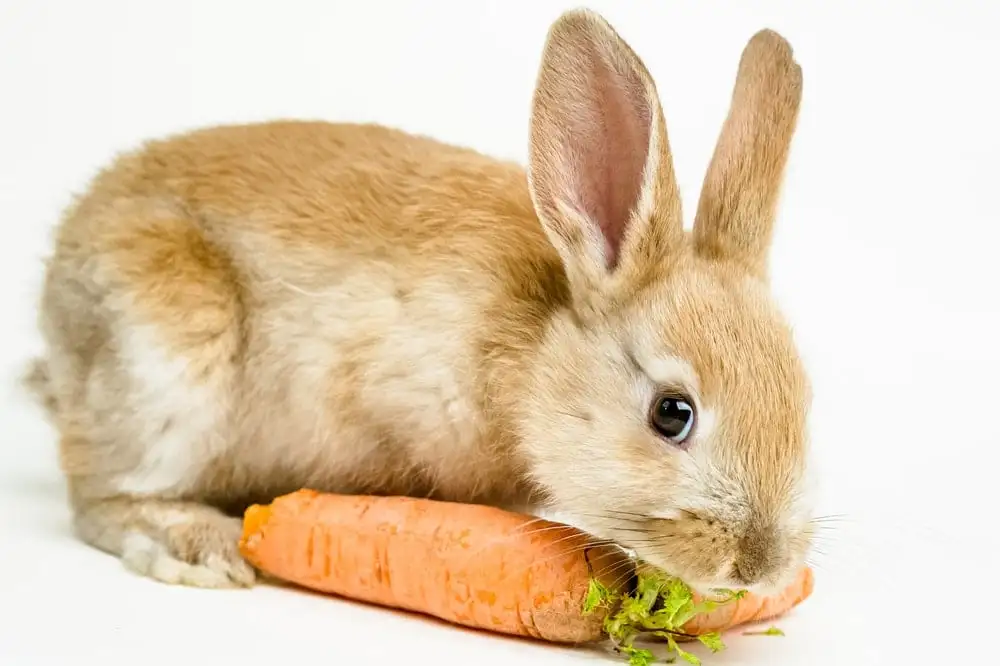
Can rabbits eat raw radishes?
All types of radishes are safe for rabbits to eat. Although radishes are not toxic for rabbits, they contain certain nutrients that could lead to serious health complications if you feed too much of them to your rabbit.
Are Raw Radishes Safe for Rabbits
Yes, rabbits can consume raw radishes, but moderation is key. Radishes belong to the Brassicaceae family, which includes cabbage, broccoli, and kale. They are rich in vitamins, minerals, and fiber, making them a potentially healthy addition to a rabbit’s diet.
Benefits of Radishes for Rabbits
Nutrient-Rich: Radishes contain essential nutrients like vitamin C, potassium, and small amounts of fiber. These nutrients can contribute to a rabbit’s overall health.
Hydration: Radishes have a high water content, which can help keep your rabbit hydrated, especially on hot days.
Variety in Diet: Introducing different vegetables, like radishes, can provide variety and enrichment to your rabbit’s diet, preventing dietary monotony.
Low in Calories: Radishes are low in calories, which can be beneficial if you’re monitoring your rabbit’s weight.
Risks and Considerations
Moderation: While radishes offer some nutritional benefits, they should be given in moderation. Too many radishes can cause digestive issues like diarrhea due to their high fiber content.
Oxalic Acid: Radishes, like other leafy greens, contain oxalic acid, which, when consumed in excess, can lead to the formation of kidney stones in rabbits. Feeding radishes in moderation helps mitigate this risk.
Introduce Gradually: If your rabbit hasn’t had radishes before, introduce them gradually into their diet. Observe your rabbit for any adverse reactions.
Wash Thoroughly: Ensure you wash radishes thoroughly to remove any pesticides or contaminants that may harm your rabbit.
Variety is Key: Radishes should be just one component of your rabbit’s varied diet. Always prioritize high-quality hay and fresh water as their main food sources.
What vegetables rabbits Cannot eat?
What can rabbits not eat? These foods are poisonous for your rabbit and could make her ill: Potatoes, daffodils, tulips, rhubarb, lillies, mushrooms, avocado, broad beans, sweet peas, buttercup, kidney beans, jasmine, foxglove and iceberg lettuce.
Potatoes: Rabbits should never be given any part of the potato plant, including the leaves, stems, and tubers. Potatoes contain a toxic compound called solanine that can be harmful to rabbits.
Tomato Leaves and Stems: While the ripe fruit of a tomato is generally safe for rabbits in moderation, the leaves, stems, and unripe green tomatoes contain a toxic substance called tomatine, which can be harmful to rabbits.
Onions and Garlic: Both onions and garlic contain compounds that can cause digestive upset and damage red blood cells in rabbits. Even small amounts should be avoided.
Leeks and Chives: These vegetables are related to onions and garlic and should also be avoided due to their potential toxicity.
Avocado: Avocado contains a substance called persin, which is toxic to many animals, including rabbits. It can lead to heart and respiratory issues.
Rhubarb: Rhubarb leaves contain oxalic acid, which can be toxic to rabbits. The stalks are generally considered safe when fed in small amounts.
Corn on the Cob: While corn kernels are safe for rabbits in moderation, the cob itself is difficult for them to digest and can cause blockages in their digestive tract.
Iceberg Lettuce: Iceberg lettuce is not toxic to rabbits, but it has very little nutritional value and can cause diarrhea due to its high water content. It’s better to opt for more nutritious leafy greens like romaine lettuce, kale, or spinach.
Cabbage and Brussels Sprouts: While these vegetables are not toxic, they can cause gas and digestive discomfort in rabbits when fed in excess. They are best given in small amounts.
Beans and Peas: Raw beans and peas can be difficult for rabbits to digest and may lead to gas and bloating. It’s better to cook them before offering them to your rabbit.
Beet Greens: While the beetroot itself is safe in moderation, the greens contain high levels of oxalic acid and should be given sparingly.
Spinach: Spinach, while high in nutrients, contains oxalic acid, which can lead to kidney problems if consumed in large quantities. It’s best to offer spinach in moderation.
Why can’t rabbits eat cucumber?
Cucumber is low in nutrients. Therefore, feeding it too often risks filling up your rabbit without providing any significant nutritional value. Due to its high water content, cucumber can cause your rabbit to have diarrhea.
High Water Content
Cucumbers are primarily composed of water, with water content ranging from 95% to 98%. While this might seem like a positive feature, it can actually be problematic for rabbits. Rabbits are sensitive to sudden changes in their diet, and consuming too much water-rich food, like cucumber, can disrupt their digestive system. Excessive moisture intake may lead to diarrhea, which can result in dehydration and electrolyte imbalances.
Nutrient Deficiency
Cucumbers are relatively low in essential nutrients that rabbits require for their overall health. They lack the fiber, vitamins, and minerals found in other rabbit-friendly vegetables and greens. If rabbits consume too much cucumber, they might not be getting the nutrients they need, leading to potential malnutrition over time.
Gas and Bloating
Cucumbers can contribute to gas and bloating in rabbits. The gas produced during digestion can cause discomfort and pain, which may result in a lethargic or distressed rabbit. This discomfort can be particularly problematic for sensitive or older rabbits.
Pesticide Concerns
Like many vegetables, cucumbers may contain pesticide residues if not properly washed. These residues can be harmful to rabbits, as their small size and sensitive systems make them vulnerable to the effects of pesticides. Always wash cucumbers thoroughly before offering them to your rabbit, or consider purchasing organic varieties.
Oxalates
Cucumbers contain oxalates, naturally occurring compounds found in some vegetables that can contribute to the formation of kidney stones in rabbits. While the oxalate levels in cucumbers are not exceptionally high, excessive consumption can still pose a risk.
Diabetic Concerns: Rabbits can develop diabetes, and cucumbers contain small amounts of sugar. If a rabbit’s diet includes too much sugar from cucumber or other sources, it can potentially exacerbate diabetic issues.
Is it safe to eat a raw Radish?
How to eat: radishes. Cute, crunchy and peppery, radishes are a pretty addition to any plate. They’re best eaten raw, and can be easily sliced into salads and sandwiches, or enjoyed whole and dipped into houmous for a healthy snack. The young leaves are delicious in salads or cooked in the same way as spinach.
Safety of Eating Raw Radishes
Washing: Like all vegetables, raw radishes should be thoroughly washed before consumption to remove any dirt, pesticides, or contaminants that may be present on the skin.
Allergies: While rare, some individuals may have allergies to radishes or other members of the Brassicaceae family, such as mustard or broccoli. If you have known food allergies, exercise caution when trying radishes for the first time.
Digestive Sensitivity: Radishes are high in fiber, which can be beneficial for most people. However, for some individuals with sensitive digestive systems, consuming large quantities of raw radishes may lead to gas or digestive discomfort. It’s advisable to introduce them into your diet gradually.
Health Benefits of Raw Radishes
Low in Calories: Raw radishes are a low-calorie food, making them a great choice for those looking to manage their weight.
Rich in Nutrients: Radishes are a good source of vitamin C, potassium, and small amounts of other vitamins and minerals, such as folate, riboflavin, and calcium.
Antioxidants: Radishes contain antioxidants like anthocyanins and quercetin, which help protect cells from oxidative damage.
Hydration: Radishes have a high water content, which can help keep you hydrated, especially during hot weather.
Digestive Health: The fiber in radishes can promote healthy digestion and regular bowel movements.
Can rabbits eat raw red cabbage?
Rabbits enjoy all kinds of cabbage, including cavolo nero and savoy cabbage. Spring greens, Bok Choy, and even red cabbages are all fine for your bunny. However, you should bear in mind that all the vegetables that come from the brassica family can cause gas and bloating.
Can Rabbits Eat Raw Red Cabbage
Yes, rabbits can eat raw red cabbage in moderation. Red cabbage, like other cruciferous vegetables, contains several beneficial nutrients that can complement a rabbit’s diet. However, it should be fed in moderation, and you must be aware of potential issues associated with its consumption.
Benefits of Red Cabbage for Rabbits
Nutrient-Rich: Red cabbage is a good source of essential nutrients, including vitamins C and K, as well as dietary fiber. These nutrients can support a rabbit’s overall health.
Antioxidants: Red cabbage contains antioxidants like anthocyanins, which help protect cells from oxidative damage.
Variety: Offering red cabbage as part of a varied diet can add interest and variety to your rabbit’s meals, preventing dietary monotony.
Considerations for Feeding Red Cabbage to Rabbits
Moderation: While red cabbage is nutritious, it should be given in moderation. Excessive consumption can lead to digestive issues such as gas, bloating, or diarrhea due to its fiber content.
Oxalates: Red cabbage contains oxalates, naturally occurring compounds that can contribute to kidney stone formation if consumed excessively. To mitigate this risk, ensure that red cabbage is just one component of your rabbit’s diet.
Introduce Gradually: If your rabbit hasn’t had red cabbage before, introduce it gradually to allow their digestive system to adjust. Watch for any adverse reactions or digestive upset.
Wash Thoroughly: Always wash red cabbage thoroughly to remove any potential pesticides or contaminants that could harm your rabbit.
Balanced Diet: Red cabbage should be part of a well-balanced diet that includes primarily hay, fresh water, and a variety of fresh vegetables.
Are rabbits hungry all the time?
Also provide them with plenty of fresh water. Rabbits are natural grazers, and it is very normal to see them eating at all times throughout the day.
Rabbit Eating Habits
Rabbits are natural herbivores, and their digestive systems are adapted to a diet rich in fiber. In the wild, they graze on various plants, leaves, and grasses almost continuously to meet their nutritional needs. This natural grazing behavior has carried over to domesticated rabbits.
Factors Influencing a Rabbit’s Appetite
Metabolism: Rabbits have relatively fast metabolisms, which means they require frequent meals to maintain their energy levels and body temperature. This can make them appear as if they are always hungry.
Dietary Needs: The quality and type of food a rabbit consumes can significantly influence its appetite. High-fiber hay should make up the bulk of their diet, followed by fresh vegetables and a small amount of pelleted food. A diet lacking in fiber may leave a rabbit feeling unsatisfied.
Age: Young rabbits tend to have higher energy requirements and may eat more frequently. As rabbits age, their metabolism may slow down, and their appetite may decrease slightly.
Activity Level: Active rabbits burn more calories and may eat more than less active counterparts. Providing opportunities for exercise and play can help regulate their appetite.
Health and Reproduction: Pregnant or nursing rabbits, as well as rabbits recovering from illness or surgery, may have increased appetites due to their increased energy demands.
Can I overfeed my rabbit?
Obesity is a very likely possibility for rabbits who consistently overeat. Excess weight is very dangerous for rabbits because it can quickly lead to any number of serious health conditions.
Can You Overfeed Your Rabbit
Yes, it is indeed possible to overfeed your rabbit, and it’s a concern that rabbit owners should be mindful of. Overfeeding occurs when a rabbit consumes more calories and nutrients than they need for their daily energy requirements. This can lead to various health problems and complications.
Consequences of Overfeeding
Obesity: Just like humans, rabbits can become overweight if they consume more calories than they burn. Obesity is a serious health issue in rabbits and can lead to a range of health problems, including heart issues, arthritis, and reduced lifespan.
Digestive Problems: Overfeeding can upset a rabbit’s delicate digestive system. It may lead to diarrhea, gut stasis (a condition where the digestive system slows down or stops), and other digestive disorders.
Dental Issues: A diet high in sugary or starchy foods can contribute to dental problems in rabbits, such as overgrown teeth or dental decay.
Diabetes: Excessive consumption of sugary or starchy foods can increase the risk of diabetes in rabbits, a condition that requires ongoing medical management.
Reduced Exercise: Overweight rabbits are often less active, which can further contribute to weight gain and related health issues.
Maintaining a Balanced Diet for Your Rabbit
Hay: High-quality hay should make up the majority of your rabbit’s diet. Offer unlimited access to hay, as it provides essential fiber for healthy digestion and helps wear down their constantly growing teeth.
Fresh Vegetables: Include a variety of fresh, leafy vegetables in your rabbit’s diet. Leafy greens like romaine lettuce, kale, and parsley are excellent choices.
Limited Pellets: Pelleted food should be given in moderation. Look for high-fiber, high-quality pellets, and follow recommended serving sizes according to your rabbit’s age and size.
Can bunnies eat cauliflower?
Rabbits can eat and usually enjoy cauliflower in small amounts. However, like all the vegetables in the brassica family, it should only be offered in moderation, as it can cause gas buildup that is uncomfortable and unsafe for your rabbit. Don’t feed your rabbit cauliflower alongside other brassicas.
Can Bunnies Eat Cauliflower
Yes, bunnies can eat cauliflower in moderation. Cauliflower, like other cruciferous vegetables, contains several beneficial nutrients that can complement a rabbit’s diet. However, it should be fed cautiously and in controlled amounts to prevent digestive issues.
Benefits of Cauliflower for Bunnies
Nutrient-Rich: Cauliflower is a good source of essential nutrients, including vitamin C, vitamin K, and dietary fiber. These nutrients can contribute to a rabbit’s overall health.
Variety: Introducing cauliflower as part of a varied diet can add diversity to your rabbit’s meals, preventing dietary monotony.
Low in Calories: Cauliflower is a low-calorie vegetable, making it suitable for rabbits that require weight management.
Considerations for Feeding Cauliflower to Bunnies
Moderation: While cauliflower is nutritious, it should be given in moderation. Excessive consumption can lead to digestive issues such as gas, bloating, or diarrhea due to its fiber content.
Gas and Digestive Sensitivity: Cauliflower, like other cruciferous vegetables, can sometimes cause gas and digestive discomfort in rabbits. It’s advisable to introduce it into your rabbit’s diet gradually and observe their response.
Wash Thoroughly: Always wash cauliflower thoroughly to remove any potential pesticides or contaminants that could harm your rabbit.
Balanced Diet: Cauliflower should be part of a well-balanced diet that includes primarily hay, fresh water, and a variety of fresh vegetables.
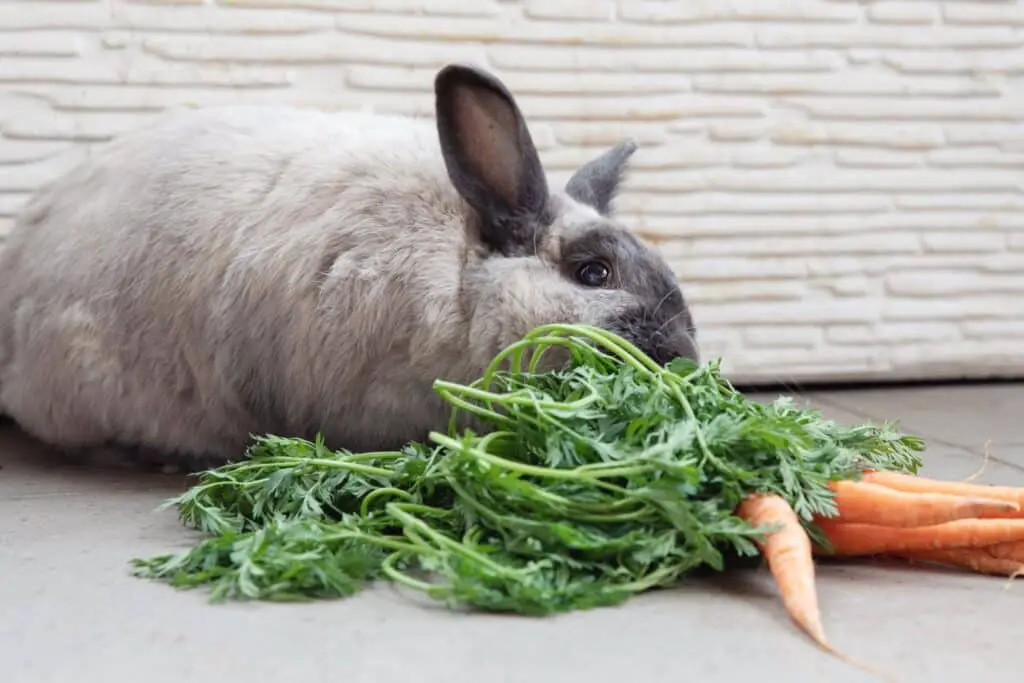
Conclusion
While rabbits can consume radishes in moderation, it’s essential to exercise caution and mindfulness when including them in their diet. Radishes offer some nutritional benefits, including vitamins and dietary fiber, but they also come with potential risks due to their sugar content. To ensure the well-being of your beloved bunny.
Feed radishes sparingly and in small amounts to prevent digestive issues. Pay close attention to how your rabbit reacts to radishes. If you notice any signs of discomfort or digestive problems, discontinue their consumption. Radish greens are generally safe and nutritious, but they should still be offered in moderation and thoroughly cleaned. Radishes should complement, not replace, the primary diet of fresh hay, high-quality rabbit pellets, and a variety of leafy greens.
If you have concerns about your rabbit’s diet or health, it’s always a good idea to consult with a veterinarian who specializes in small animals.Ultimately, the key to a healthy and happy rabbit is a well-balanced diet. Radishes can be an occasional and small part of that diet, but they should not become a staple. By being attentive to your rabbit’s needs and preferences, you can ensure they enjoy a nutritious diet that supports their overall health and longevity.

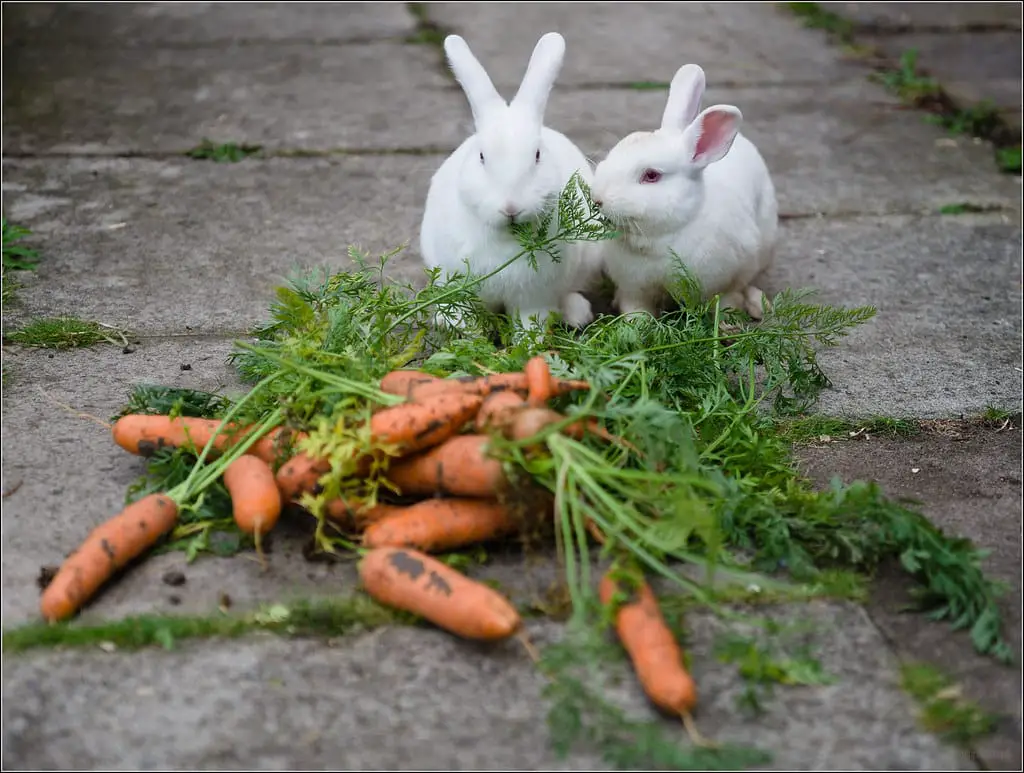
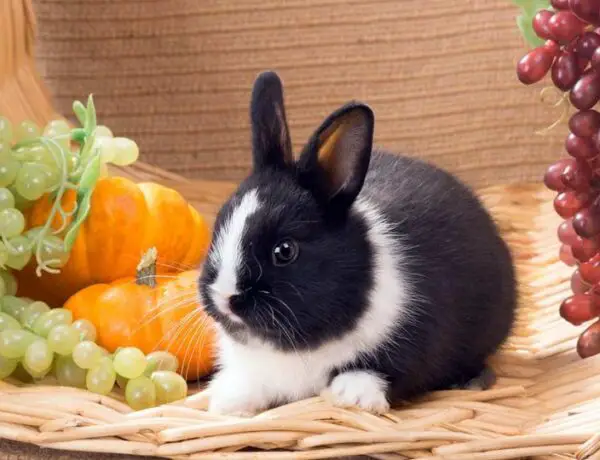
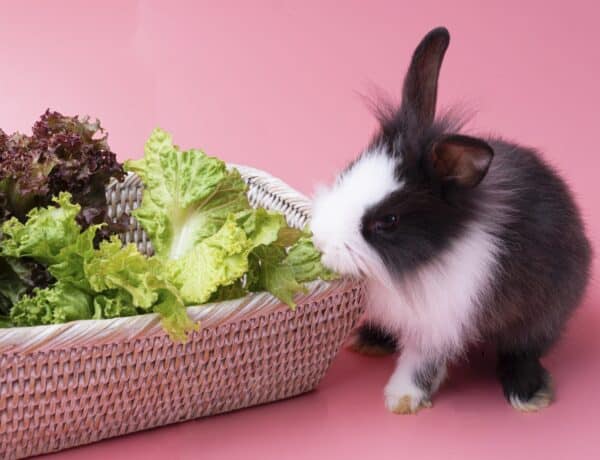
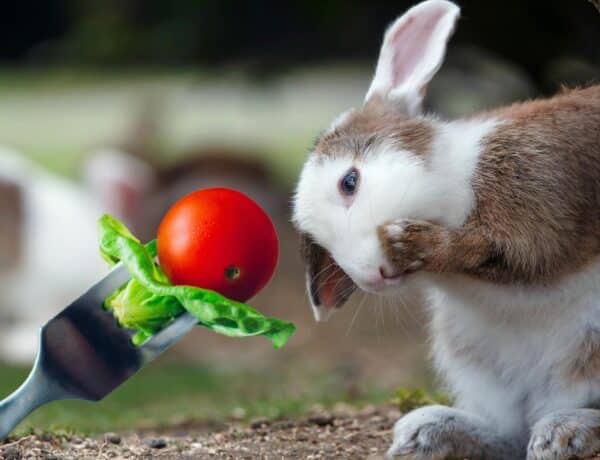
No Comments